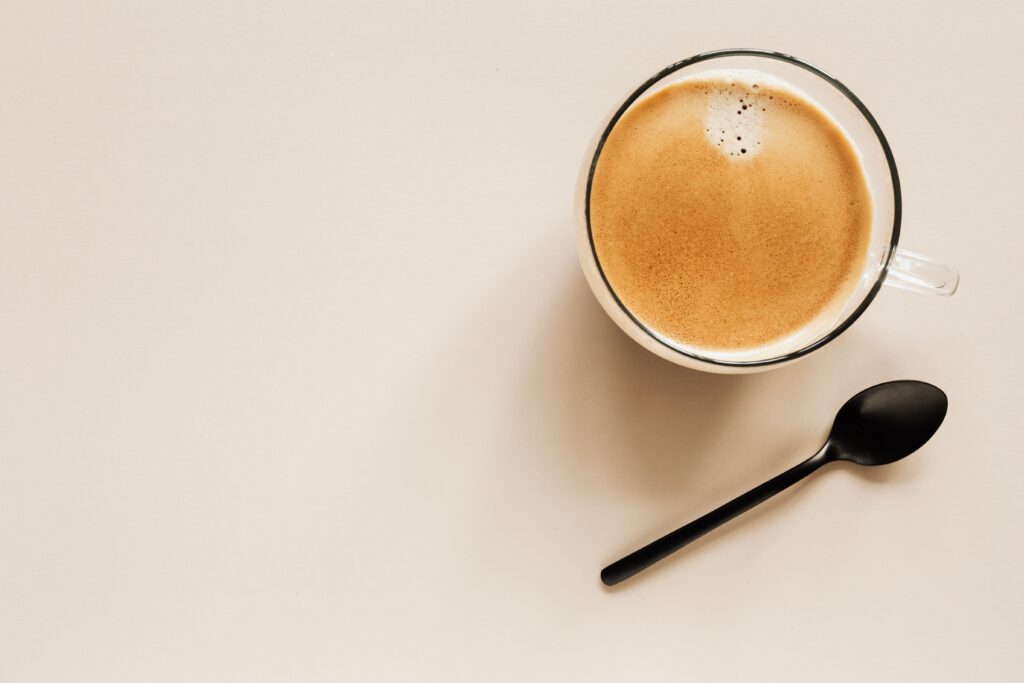Should we Cancel Corporate Coffee Culture? The impact of Caffeine on Fertility
April 13, 2023
Coffee. The beloved beverage that millions of women worldwide consume daily. It’s often seen as a social lubricant, a productivity booster, and a daily necessity.
Coffee culture has become an integral part of our everyday lives. However, while coffee has become a staple in our society, there is a growing concern about its impact on women’s health as the overconsumption of caffeine can lead to hormonal imbalances that can cause fertility problems.
Coffee culture is so deeply ingrained in our everyday lives that it is hard to imagine a world without it. However, as we delve deeper into the science of caffeine and its effects on the body, we begin to question whether our love affair with coffee is doing us more harm than good.
Should we cancel coffee culture? Let’s explore this topic in more detail.

Coffee culture in the corporate landscape
In many workplaces, coffee is the go-to drink for increasing productivity and keeping you alert and focused. However, the reliance on caffeine can create a vicious cycle of dependence, where you need more and more caffeine to get through the day, leading to a range of negative side effects, including insomnia, headaches, heart palpitations, sleep problems, anxiety and digestive problems.
Many women use caffeine as a crutch to get through busy periods. It’s become a badge of honor to be constantly working and achieving, leading to many women feeling there is a constant to do list, that requires constant fueling. Queue caffeine. The stimulant we love and gives us an artificial state of alertness.
More than 90% of women in the western world start their day with a caffeinated drink.
But is it worth it if it messes with our hormones, metabolism & mental wellbeing?
Reason 1: Sleep
When you consume caffeine, it blocks the function of a neurotransmitter called adenosine, which is responsible for promoting sleep. Adenosine levels increase throughout the day, making you feel tired and ready to sleep at night. Lovely.
However, when you consume excessive amounts of caffeine, that beautiful biology is blocked, making it harder to wind down, rest, and have high quality restorative sleep.
When you’re trying to conceive, getting adequate sleep is crucial, as your sleep hormone melatonin supports the production of LH & FSH which you need in abundance to ovulate. In addition to this, melatonin is also found in the fluid within your follicles that acts as an antioxidant and protects your egg.
Accessing your natural source of melatonin (through sleep) is key for fertility, and that extra coffee in the afternoon isn’t worth it when you’re trying to conceive, and has the potential to make the journey more challenging than it needs to be.
Reason 2: Progesterone Preventer
When you consume caffeine, it causes a spike in adrenaline and cortisol, the stress hormones.
So what exactly has that got to do with your fertility? After ovulation occurs, your body produces the hormone Progesterone (which means pro-gestation), which helps you hold a pregnancy. Excessive caffeine can interfere with your progesterone production, as cortisol blocks progesterone. The hormone progesterone makes you feel peace and quiet. When this hormone is low, it makes you feel more anxious and stressed which adds fuel to the caffeine culture fire.
Low progesterone is a women’s health epidemic that not only affects fertility, but women’s health in general
Reason 3: Caffeine meets Pesticides
Coffee beans are the most traded commodity globally, with the industry generating billions of dollars annually. However, as the coffee bean industry is heavily sprayed with pesticides, it not only impacts the environment but the health of those who consume coffee.
Remember, pesticides are toxins that have to be metabolized by your liver, and if your liver is overworked from a high toxic load, it can struggle to metabolize and convert other hormones, which can lead to estrogen dominance and push hormones further out of balance.
If you’re consuming coffee or tea. Always go organic.


You love your coffee, and don’t want to quit?
We don’t blame you and aren’t surprised that you love it. Caffeine makes you feel more alert and gives you that dopamine hit which stimulates your brain’s pleasure centers.
With the right strategy and action plan, cutting back doesn’t have to be hard. In this article we have tips to help you kick the caffeine habit to the curb.
- Set a goal and make a plan: Whether you want to quit cold turkey or gradually reduce your caffeine intake, it’s important to set a specific goal and create a plan to achieve it. This can include gradually reducing your coffee intake over a period of weeks or months, switching to decaf or herbal tea, or finding alternative ways to boost your energy.
- Identify your triggers: Take note of when you tend to reach for a cup of coffee. Is it when you’re stressed or feeling tired? Are there specific times of day when you crave caffeine? Once you understand your triggers, you can develop strategies to avoid or manage them.
- Find alternative sources of energy: Instead of relying on coffee for a quick energy boost, consider other ways to energize yourself.If you’re hungry and crave a coffee, don’t ignore your body’s signal for food-based energy: Coffee can temporarily suppress your appetite, but it’s important to listen to your body’s signals for hunger and fuel it with nutritious foods. Grabbing a handful of nuts can provide a quick source of energy and keep you feeling satisfied for longer.
- Get enough sleep: One of the main reasons people turn to coffee is to combat fatigue. However, getting enough sleep is the best way to address this issue. Aim to get at least 7-8 hours of sleep per night and establish a regular sleep routine.
- Don’t drink caffeine after 12pm: Drinking coffee or other caffeinated beverages too late in the day interferes with your sleep, leading to fatigue, melatonin production and difficulty concentrating the following day. To avoid this, try to limit your caffeine intake to the morning.
- Go Organic: Majority of coffee bean are sprayed with pesticides and herbicides, which can have negative impacts on your health, including your hormones. Choosing organic coffee can reduce your exposure to these chemicals, and opting for fair trade coffee can also support more sustainable and ethical farming practices.
- Ditches & Switches – Green Tea: If you want to cut out coffee completely, try switching to green tea: Green tea contains a small amount of caffeine, but also contains antioxidants and other compounds that have been shown to have health benefits. Making the switch to green tea can be a good way to reduce your caffeine intake without giving up the ritual of drinking a warm beverage.
- Ditches & Switches – Tulsi: Tulsi herbal tea is adaptogenic which is brilliant for women’s health: Tulsi (also known as holy basil) is an adaptogenic herb that can help support your body’s stress response and promote overall health and wellbeing. It can be a good alternative to coffee for people who are looking to reduce their caffeine intake.
Remember, there’s no one-size-fits-all solution when it comes to quitting or cutting down on coffee. It’s important to find an approach that works for you and to be patient and kind to yourself throughout the process. By taking small steps and making gradual changes, you can successfully reduce your caffeine intake and enjoy the many benefits of a lower-stress, more balanced lifestyle.
If you crave a high level of support, education and community as you’re trying to Conceive, check out our Fertility and Leadership Coaching programme Conceived HERE

Leave a Reply Cancel reply
Contact
Building a Better Fertility Future for Women at Work
Home
For Her
Cookies Policy
Blog
About
Brand & Site Credit
Terms & Conditions
Privacy Policy
Corporate Services
love this, some great food for thought as i run to the shop and by some tulsi tea!